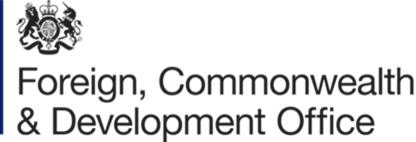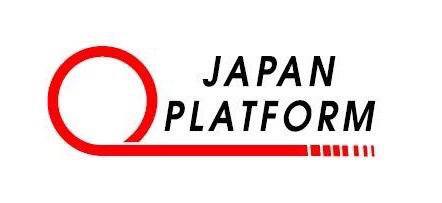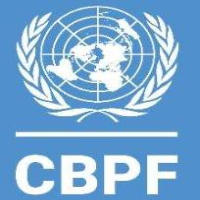Nutrition
Nutrition
Malnutrition is both a cause and consequence of poverty in South Sudan and it negatively affects all aspects of an individual’s health and development and limits societies’ economic and social development. The aim of THESO’s 2020 – 2030 Nutrition Strategy is to guide the organisation’s nutrition policies and programmes in both humanitarian and development contexts with the goal of improving nutrition to save lives, build resilience, increase economic productivity, and advance development.
The strategy supports South Sudan strategy to end extreme poverty and to promote resilient in South Sudan while advancing national prosperity by working closely with partners at all levels. The 10-years strategy is a long-term commitment to make significant progress in nutrition, with regular reviews to make necessary adjustments as the global nutrition environment changes.
THESO seeks new ways of working with government and other partners to accelerate improvements in nutrition by decreasing the prevalence of maternal and child under-nutrition – particularly chronic and acute malnutrition and micronutrient deficiencies in children under five and malnutrition in women of reproductive age (ages 15-49). THESO will prioritize the prevention of malnutrition given the irreversible consequences of chronic under-nutrition early in life. THESO continues to be at the forefront of the humanitarian community’s effort in South Sudan to reduce and treat acute malnutrition during emergencies, while retaining a strong focus on prevention of under-nutrition in women and children living in food insecure South Sudan.
Given expected demographic, environmental, and epidemiological trends over the course of the Strategy (e.g., climate change, conflict, urbanization, non-communicable diseases, technological advancements), the organisation will ensure the Nutrition Strategy has the flexibility to evolve as new evidence becomes available. This will include a robust learning agenda that supports expanding research to address critical knowledge gaps; monitoring and rigorous evaluation to inform program implementation; and timely dissemination and application of lessons learned.
Promoting gender equality and the empowerment of women and girls is a commitment across THESO’s nutrition programmes. Recognising that traditional gender roles, norms, and social structures impact both women and men (and boys and girls), the Strategy will promote gender equality in working with women, men, youth, families, communities and governments to enable sustained change in nutrition behaviours and overall development outcomes.
This framework has guided the development of the Results Framework and should serve as a tool for coordinated, multidisciplinary programming that is expected over the course of the Strategy.
-
National Capacity and Commitment to NutritionAdvancing nutrition in South Sudan requires local capable human resources, effective national institutions, and functional systems to plan, manage, and evaluate programmes. Strong national commitment and government leadership along with the active engagement of communities, the private sector, and civil society are essential for achieving and sustaining nutrition outcomes.
THESO will support the national development efforts of strong human and institutional capacity in nutrition to create well-educated cadres of nutrition professionals, who have scientific backgrounds and competencies to provide strategic leadership at national, state, county and community levels. USAID will strengthen essential country systems that assure good governance, resource tracking and accountability, as well as effective management and delivery of services at national, regional, and local levels. Ensuring capacity within communities to provide leadership and management of nutrition-related activities is also fundamental.
The commitment of South Sudan leadership to nutrition at all levels, including larger and sustained resource allocations for nutrition, is essential to creating and sustaining momentum and for conversion of that momentum into results on the ground. Building national, cross-sectoral, multi-stakeholder commitment to nutrition will foster coordination across government ministries, promote public-private partnerships, build country capacity, set strong policy foundations, and increase the ease and likelihood of being able to expand availability and utilisation of nutrition services.
THESO will continue contributing to promoting strong national commitment to nutrition, investing in the development and implementation of country policies, strategies, and systems for nutrition, multi-stakeholder engagement, and effective regulatory standards and norms. Support to and engagement of the private sector including the food industry, WASH products and services, telecommunications, pharmaceutical, and delivery of quality nutrition services are important components of reinforcing country capacity. -
Increased Multi-Sectoral Programming and Coordination for Improved Nutrition OutcomesEffective multi-sectoral coordination along with collaborative planning and programming across sectors at national, state, and county levels are necessary to accelerate and sustain nutrition improvements and programming nutrition-specific and nutrition-sensitive interventions in the same geographic areas can also be effective to improve nutrition outcomes.
THESO will work with MoH and partners to strengthen national multi sectoral coordination and promote the establishment of mechanisms and programmes to jointly plan and programme resources across sectors for nutrition results. In partnership with governments, donors, and United Nations agencies, THESO will strive to bring together the necessary sectors to effectively improve nutrition in targeted areas. THESO aim to expand linkages and joint planning between humanitarian assistance and development programmes in order to build resilience, reduce the negative impacts of periodic or recurrent shocks, and improve economic and social opportunities for sustainable nutritional outcomes. -
Increased Equitable Provision and Utilisation of High-Quality Nutrition ServicesTHESO seeks to accelerate reductions in malnutrition – particularly chronic and acute under-nutrition in young children and malnutrition in adolescent girls and women of reproductive age – by increasing the equitable provision and utilisation of high-quality nutrition services. Both nutrition-specific and nutrition-sensitive interventions are necessary to further impact and reduce malnutrition.
THESO will strengthen service delivery systems to ensure timely and equitable delivery of services for all vulnerable populations working closely with South Sudan MoH and other partners across different sectors to achieve large-scale, sustainable nutrition impact and ensure quality of services as a primary determinant of ultimate effectiveness and impact. All nutrition programmes will consider the key roles of girls and women and focus activities that target women’s nutrition for their own health. THESO will support the social and behaviour change strategies and approaches that are essential components of nutrition-specific and -sensitive activities. -
Increased Partnership with Global Nutrition Partners and LeadershipTHESO will engages with the global nutrition community to improve South Sudan strategic and technical coordination, develop a stronger evidence base to inform and address national nutrition priorities, and support ongoing application of innovation and experiential knowledge to improve national policy, strategy and practice. THESO will continue its participation in the Scaling Up Nutrition (SUN) movement.
Together, these actions represent a roadmap to ensure that THESO supported nutrition initiatives align with and contribute significantly to ongoing national and state-level efforts to improve nutrition for all. A dynamic and diverse global nutrition community is working towards a vision bigger than what any one organisation or sector can achieve alone. Thus, there is a clear need for coordination and collaboration among a wide spectrum of partners with diverse strengths and expertise, and clear systems for generating and applying evidence and learning across multiple regions and stake holder groups, including South Sudan and national governmental agencies, United Nations agencies, civil society, donors, international organisations, academia, and the private sector. Evidence and knowledge must also be shared across multiple sectors and cross cutting areas.












